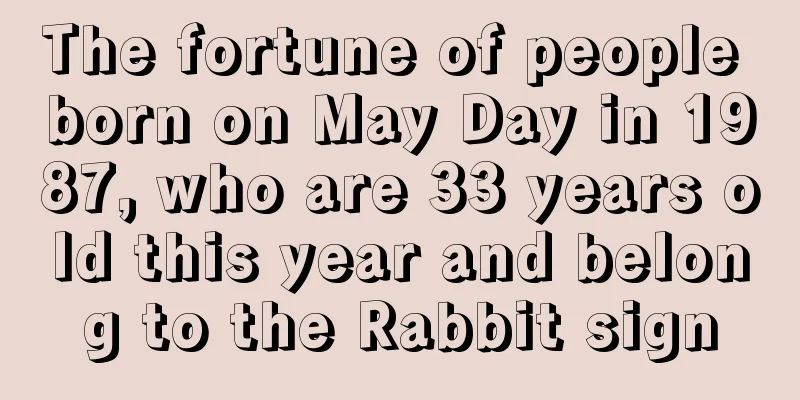What does Mid-Autumn Festival offerings mean? How did the ancients celebrate Mid-Autumn Festival?

As one of the traditional festivals, the Mid-Autumn Festival actually has very special customs and habits. So, let’s take a look at what Mid-Autumn Festival Qinggong means? How did the ancients celebrate Mid-Autumn Festival? Autumn is a colorful season. Most people like it because it is a season of harvest and is full of happiness. Follow Shuimoxiansheng.com to learn about every day of the eighth lunar month in 2021.What does Mid-Autumn Festival offerings mean?Qinggong refers to items placed on the desk indoors for viewing, mainly including various bonsai, flower arrangements, seasonal fruits, rare stones, handicrafts, antiques, exquisite stationery, etc., which can add interest to life in the hall or study.The so-called Qinggong actually has two meanings. One refers to elegant offerings, such as pine, bamboo, plum, fresh flowers, incense and food; the other refers to ancient artifacts, bonsai and other things for appreciation, such as study Qinggong, research Qinggong and desk Qinggong. The meaning of Mid-Autumn Festival Qinggong is to place items for viewing indoors during the Mid-Autumn Festival. The most common offering for the Mid-Autumn Festival is osmanthus. The ancients not only put osmanthus flowers in vases, but also burned osmanthus incense in incense burners. Lin Hong's "Shan Jia Qing Gong" records: "People pick flowers, steam them slightly, and dry them to make incense. They chant while drinking wine and burn them in an ancient cauldron, which is particularly refreshing." Of course, different people place them differently, and the specific placement also needs to be based on one's own preferences. How did the ancients celebrate Mid-Autumn Festival?This depends on the dynasty. People in different dynasties celebrate Mid-Autumn Festival in different ways.Mid-Autumn Festival in the Tang Dynasty: The Mid-Autumn mooncake was named by Yang Guifei. The original mooncake was called Hubing. Legend has it that when Emperor Xuanzong of Tang and Yang Guifei were appreciating the moon, Yang Guifei thought Hubing was delicious but did not sound good, so Hubing was officially renamed mooncake. In ancient times, eating mooncakes required everyone to eat one, and the mooncakes were cut into pieces according to the number of people, with one portion for each person. For family members who did not return home, one portion would also be left for them, so it was better to just call it mooncake. Mid-Autumn Festival in the Song Dynasty: The later you sleep on Mid-Autumn Festival, the longer you will live. In the Song Dynasty, water lanterns would be set off on Mid-Autumn night, and night markets would be open all night, and people would also play all night. It is said that the later you sleep on that day, the longer you will live. Mooncakes can be less but osmanthus wine cannot be less. Literati and poets would sing while drinking, and when families get together, it is popular to worship the moon instead of appreciating the moon, to pray for their own beautiful vision of the future. Mid-Autumn Festival in the Yuan Dynasty: Small mooncakes hide big secrets. The Mid-Autumn Festival customs of the Yuan Dynasty were almost unreliable, but the story of Zhu Yuanzhang and mooncakes is still talked about by people today. Zhu Yuanzhang united various resistance forces to prepare for an uprising, but it was very difficult to deliver messages. Military advisor Liu Bowen came up with a plan to hide a note in the mooncake to deliver the message. Eventually, all forces responded together, and the uprising spread like wildfire. Ming Dynasty celebrated Mid-Autumn Festival: Cutting watermelon into lotus shape was a must for mooncakes and watermelons during the Ming Dynasty. Watermelons had to be carved into lotus shapes for the Mid-Autumn Festival and the moon worship. Carving is a technical job, at least it is difficult for modern people to do it without practice. Mid-Autumn Festival in the Qing Dynasty: Stealing onions and vegetables was a very popular custom among girls during the Qing Dynasty during the Mid-Autumn Festival. There is a saying: steal an onion to marry a good husband, steal a vegetable to find a good son-in-law. Married women would steal melons to pray for children. The Mid-Autumn Festival customs in each dynasty were very interesting. |
<<: What is the fate and personality of girls/boys born on Mid-Autumn Festival in 2021?
Recommend
Is October 11th of the lunar calendar in 2021 an auspicious day? Is it suitable for starting renovations?
Although the tenth month in the lunar calendar is ...
Which countries celebrate Mid-Autumn Festival? What are the other names of Mid-Autumn Festival? What do we pray for during Mid-Autumn Festival?
Introduction: It’s Mid-Autumn Festival again. Whic...
Recommended auspicious dates for engagement around the 2020 Summer Solstice. Is the 2020 Summer Solstice a good date?
Introduction: It is necessary to choose an auspici...
What is the zodiac sign of a baby born on October 21, 2018 in the lunar calendar?
In the tenth month of the lunar calendar, autumn i...
Where are the directions of the three gods of happiness in March? A list of the directions of the God of Happiness at different times!
Where are the directions of the three gods of happ...
Is the ninth day of the sixth lunar month in 2019 suitable for setting up the bed? Is today an auspicious day for setting up the bed?
Introduction: Setting up the bed is a big deal, an...
How about the 30th day of the twelfth lunar month in 2020? Why is the 30th day of the twelfth lunar month New Year’s Eve?
The quality of different days is different. Someti...
What is the fate of a Tiger born on Qingming Festival? OK?
The fortune of the zodiac tiger born at different ...
What are the customs of Jingzhe? What does Jingzhe mean?
Introduction: Jingzhe is one of the 24 solar terms...
Is May 21st of the lunar calendar 2019 a good day? Is it suitable for signing a contract?
Chinese folklore believes that the fifth month of ...
Is it suitable to pick up a car on the sixth day of the fourth lunar month in 2021? What about the lunar calendar?
April is also called Mengxia, the first month of s...
What are the sayings and rules for the beginning of summer in 2019? If it doesn't rain at the beginning of summer, the plows and harrows should be hung high.
What are the folk sayings and customs about the Be...
Is the eleventh day of the twelfth lunar month in 2018 an auspicious day?
Is the eleventh day of the twelfth lunar month in ...
How will the marriage fortune of people born in the year of the horse be good in 2017? Is the beginning of autumn a suitable date for marriage?
Introduction: The Beginning of Autumn is one of th...
Is April 13th of the lunar calendar in 2017 a good day for marriage?
Introduction: April is the end of spring, when pom...









